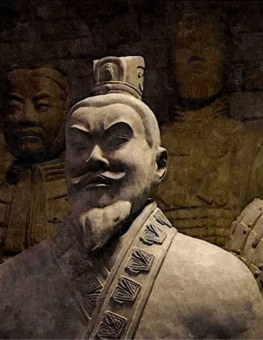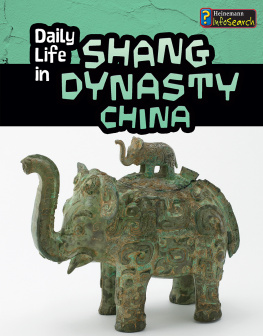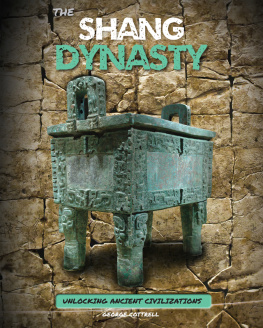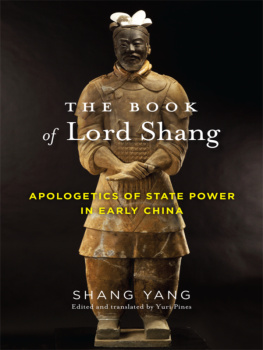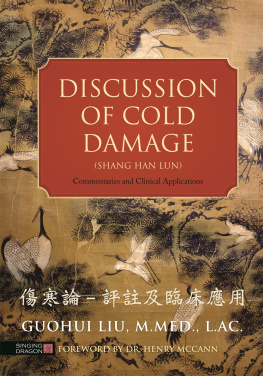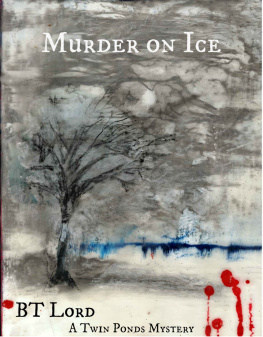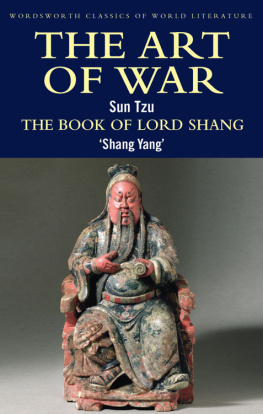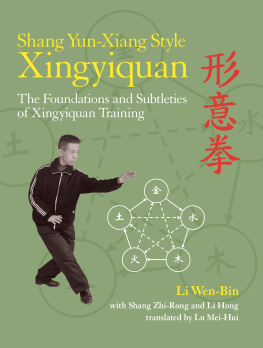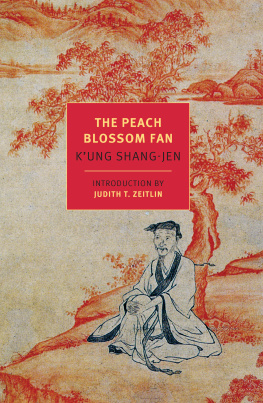Lord Shang - The Book of Lord Shang
Here you can read online Lord Shang - The Book of Lord Shang full text of the book (entire story) in english for free. Download pdf and epub, get meaning, cover and reviews about this ebook. year: 0, genre: Science / Politics. Description of the work, (preface) as well as reviews are available. Best literature library LitArk.com created for fans of good reading and offers a wide selection of genres:
Romance novel
Science fiction
Adventure
Detective
Science
History
Home and family
Prose
Art
Politics
Computer
Non-fiction
Religion
Business
Children
Humor
Choose a favorite category and find really read worthwhile books. Enjoy immersion in the world of imagination, feel the emotions of the characters or learn something new for yourself, make an fascinating discovery.
- Book:The Book of Lord Shang
- Author:
- Genre:
- Year:0
- Rating:5 / 5
- Favourites:Add to favourites
- Your mark:
- 100
- 1
- 2
- 3
- 4
- 5
The Book of Lord Shang: summary, description and annotation
We offer to read an annotation, description, summary or preface (depends on what the author of the book "The Book of Lord Shang" wrote himself). If you haven't found the necessary information about the book — write in the comments, we will try to find it.
The Book of Lord Shang — read online for free the complete book (whole text) full work
Below is the text of the book, divided by pages. System saving the place of the last page read, allows you to conveniently read the book "The Book of Lord Shang" online for free, without having to search again every time where you left off. Put a bookmark, and you can go to the page where you finished reading at any time.
Font size:
Interval:
Bookmark:
The Book of Lord Shang
By Shang Yang

Warring States (475 BC - 221 BC)
The Book of
Lord Shang
Duke Xiao discussed his policy. The three Great Officers, Gong sun Yang, Gan Long and Du Zhi, were in attendance on the Prince. Their thoughts dwelt on the vicissitudes of the world's affairs; they discussed the principles of rectifying the law, and they sought for the way of directing the people.
The prince said: "Not to forget, at his succession, the tutelary spirits of the soil and of grain, is the way of a prince; to shape the laws and to see to it that an intelligent ruler reigns, are the tasks of a minister. I intend, now, to alter the laws, so as to obtain orderly government, and to reform the rites, so as to teach the people; but I am afraid the empire will criticize me."
Gong sun Yang said: "I have heard it said that he who hesitates in action, does not accomplish anything, and that he who hesitates in affairs, gains no merit. Let Your Highness settle Your thoughts quickly about altering the laws and perhaps not heed the criticism of the empire. Moreover, he who conducts himself as an outstanding man is, as a matter of course, disapproved of by the world; he who has thoughts of independent knowledge is certainly despised by the world. The saying runs: 'The stupid do not even understand an affair when it has been completed, but the wise see it even before it has sprouted.' One cannot let the people share in the thoughts about the beginnings of an affair, but they should be allowed to share in the rejoicings over the completion of it. The law of Guo Yan says: 'He who is concerned about the highest virtue is not in harmony with popular ideas; he who accomplishes a great work, does not take counsel with the multitude.' The law is an expression of love for the people; rites are a means for making things run smoothly. Therefore a sage, if he is able to strengthen the state thereby, does not model himself on antiquity, and if he is able to benefit the people thereby, does not adhere to the established rites."
But Gan Long said: "Not so. I have heard it said: 'A sage teaches without changing the people, and a wise man obtains good government without altering the laws.' If one teaches in accordance with the spirit of the people, success will be achieved without effort; if one governs, holding on to the law, officials will be well versed in it and the people will live quietly. Now, if Your Highness alters the laws without adhering to the old customs of the Ch'in state, and reforms the rites in order to teach the people, I am afraid that the empire will criticize Your Highness, and I wish that You would reflect maturely."
Gong sun Yang replied: "What you, sir, hold is the point of view of the man in the street. Indeed, ordinary people abide by old practices, and students are immersed in the study of what is reported from antiquity. These two kinds of men are all right for filling offices and for maintaining the law, but they are not the kind who can take part in a discussion which goes beyond the law. The Three Dynasties have attained supremacy by different rites, and the five Lords Protector have attained their protectorships by different laws. Therefore, a wise man creates laws, but a foolish man is controlled by them; a man of talent reforms rites, but a worthless man is enslaved by them. With a man who is enslaved by rites, it is not worth while to speak about matters; with a man who is controlled by laws, it is not worth while to discuss reform. Let Your Highness not hesitate."
Du Zhi said: "Unless the advantage be a hundredfold, one should not reform the law; unless the benefit be tenfold, one should not alter an instrument. I have heard it said that in taking antiquity as an example, one makes no mistakes, and in following established rites one commits no offence. Let Your Highness aim at that."
Gong sun Yang said: "Former generations did not follow the same doctrines, so what antiquity should one imitate? The emperors and kings did not copy one another, so what rites should one follow? Fu Xi and Shen nong taught but did not punish; Huang di, Yao and Shun punished but were not angry; Wen wang and Wu wang both established laws in accordance with what was opportune and regulated rites according to practical requirements; as rites and laws were fixed in accordance with what was opportune, regulations and orders were all expedient, and weapons, armour, implements and equipment were all practical. Therefore, I say: 'There is more than one way to govern the world and there is no necessity to imitate antiquity, in order to take appropriate measures for the state.' Tang and Wu succeeded in attaining supremacy without following antiquity, and as for the downfall of Yin and Xia - they were ruined without rites having been altered. Consequently, those who acted counter to antiquity do not necessarily deserve blame, nor do those who followed established rites merit much praise. Let Your Highness not hesitate."
Duke Xiao said: "Excellent ! I have heard it said that in poor country districts, much is thought strange, and that in village schools there are many debates. What the foolish laugh about, the wise are sad about; the joy of a madman is the sorrow of a man of talent. One should, in one's plans, be directed by the needs of the times - I have no doubts about it."
Thereupon, in consequence, he issued the order to bring waste lands under cultivation.
If there is no procrastination in the creating of order, depraved officials have no opportunity of gaining private profits at the expense of the people, nor will the hundred officials be in a condition to temporise and to shift responsibilities on to one another. If the hundred officials are not in a condition to temporise and shift responsibilities on to one another, then agriculture will know days of surplus; and if the depraved officials have no opportunity of gaining private profits at the expense of the people, then agriculture will not be ruined. If agriculture is not ruined, but knows days of surplus, then it is certain waste lands will be brought under cultivation.
If taxes are levied according to the measure of grain, then the ruler will have system and consequently the people will have peace. If the ruler has system, he will be a man of his word, and being a man of his word, the officials will not dare to commit any depravity. If the people have peace, they are circumspect, and being circumspect, they are difficult to move. If the ruler is a man of his word and in consequence the officials dare not commit any depravity, and if the people are circumspect and consequently difficult to move, then there will be no criticism by inferiors of superiors, nor will the officials be regarded as obnoxious. If so, then the able-bodied will be strenuous in agriculture, without changing. If the able-bodied are so, then the youthful will learn it without resting, and when the youthful learn it without resting, it is certain waste lands will be brought under cultivation.
If dignities are not conferred nor office given according to deviating standards, then the people will not prize learning nor, besides, will they hold agriculture cheap. If they do not prize learning, they will be stupid, and being stupid, they will have no interest in outside things; when they have no interest in outside things, the country will exert itself in agriculture and not neglect it, and when the people do not hold agriculture cheap, the country will be peaceful and free from peril. If the country is peaceful and free from peril, exerts itself in agriculture and does not neglect it, then it is certain waste lands will be brought under cultivation.
Font size:
Interval:
Bookmark:
Similar books «The Book of Lord Shang»
Look at similar books to The Book of Lord Shang. We have selected literature similar in name and meaning in the hope of providing readers with more options to find new, interesting, not yet read works.
Discussion, reviews of the book The Book of Lord Shang and just readers' own opinions. Leave your comments, write what you think about the work, its meaning or the main characters. Specify what exactly you liked and what you didn't like, and why you think so.

